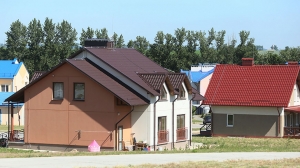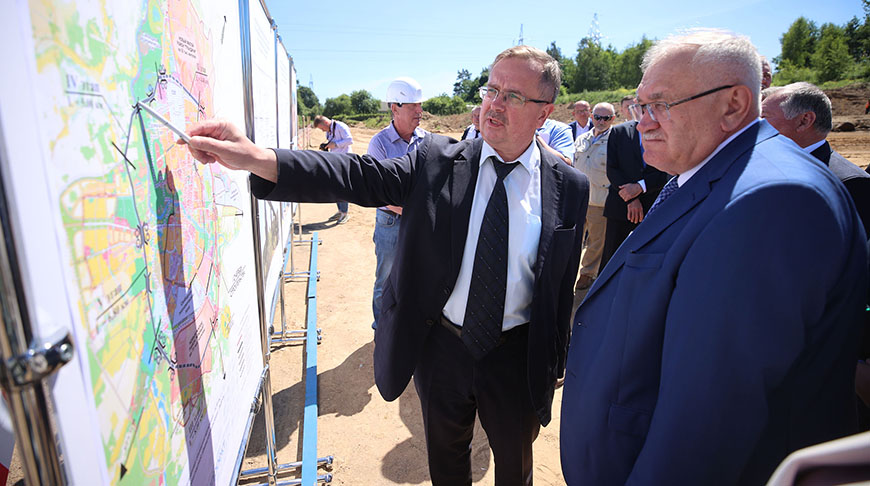Plans to build over 2m all-electric houses in Belarus within five years

GRODNO, 16 June (BelTA) – Over 2 million all-electric houses are supposed to be built in Belarus over the course of five years, BelTA learned from Belarusian Deputy Energy Minister Mikhail Mikhadyuk on 16 June.
The official said: “Plans have been made to commission slightly more than 2 million m2 of new housing that will use primarily electricity [for heating, hot water supply, and cooking]. We've worked out the relevant programs with every oblast administration in order to make it happen.”

There is also a program on switching single-family houses to electricity for heating, hot water supply, and cooking. The houses are located in the countryside more often than not. “At present about 80% of the 53,000 applications for the switch have been satisfied primarily where the technical capacity is available and the local power grid is reconstructed. Roughly 1,700km of power grids is reconstructed in Belarus every year. Starting next year we intend to raise the figure to 2,700km in order to better satisfy these applications,” the deputy energy minister said. Mikhail Mikhadyuk pointed out that the possibility of allowing the households that want to become all-electric to spend their own money to reconstruct power grids is under consideration.
A national seminar on the integrated development of single-family housing construction areas and on the construction of all-electric houses took place in Grodno on 16 June. New construction is one of the ways to switch households to electricity for heating, hot water supply, and cooking.
Deputy Prime Minister Anatoly Sivak, heads of the relevant ministries and government agencies, representatives of the oblast administrations, heads of Belarusian construction enterprises took part in the seminar. During the seminar they were made familiar with the integrated construction of a block of semidetached all-electric houses in the satellite town of Skidel and in the agrotown of Lutskovlyany. They examined the architectural concept and the construction of new city blocks in Grodno. They also took a closer look at the energy-effective technologies, which are used to build a 120-apartment residential building in Dzerzhinskogo Street in Grodno. The national seminar ended with a plenary session at premises of the civil engineering company OAO Grodnozhilstroi.













